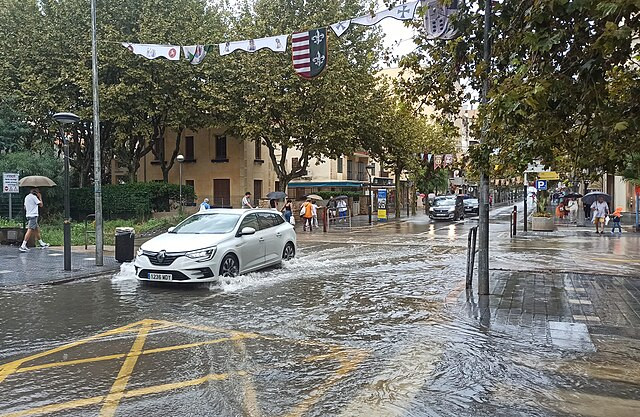Spain is reeling from its deadliest floods in recent history, which have devastated the Valencia region and claimed at least 205 lives, with more rain predicted. Three days after flash floods destroyed towns across eastern Spain, officials reported 202 deaths in Valencia alone, leaving survivors trapped in homes or isolated without access to food, clean water, or electricity. The Spanish weather agency Aemet has issued new alerts as further rain is anticipated, putting already hard-hit regions on high alert.
The flooding began Tuesday when torrential rains overwhelmed the region, submerging homes, tearing apart roads, and blocking major highways under a thick layer of mud. Some areas received more rainfall in a single day than they had in the previous 20 months combined. In the town of Chiva, the impact was immediate and disastrous. "Entire houses have disappeared; we don't know if there were people inside," said Mayor Amparo Fort.
With homes destroyed and entire neighborhoods submerged, survivors like Juan Vicente Pérez from Chiva are grappling with unimaginable loss. "All my memories are there, my parents lived there ... and now it's all gone in one night," Pérez told The Associated Press.
Emergency responders have deployed over 1,700 soldiers, with an additional 500 troops announced on Friday by Defense Minister Margarita Robles, to assist with rescues, water pumping, and debris clearing. Specialized teams with mobile morgues and psychologists are aiding in recovery efforts. Robles acknowledged the unusual nature of the storm, stating, "This is unprecedented, not just in this century but even in the last."
The impact has stirred a wave of local solidarity, with thousands of volunteers from unaffected areas trekking through mud-filled streets, carrying food, water, and essential supplies to flood-stricken communities. However, authorities have urged volunteers to stay home, warning that blocked roads could impede emergency efforts.
In Alfafar, one of the most devastated towns in south Valencia, Mayor Juan Ramón Adsuara described conditions as dire. "People are living with corpses at home," he told reporters. "We are organizing ourselves, but we're running out of everything." Residents there have been left without critical necessities. One Alfafar resident expressed the desperation felt by many: "We don't have milk, we don't have water. We have no access to anything."
While the country is accustomed to autumn storms, this disaster is the worst flooding in Spain's recent memory. Experts link the deluge to climate change, with human-caused global warming reportedly doubling the likelihood of such severe weather. The World Weather Attribution group recently concluded that climate change has intensified storms in the Mediterranean, which is warming due to rising temperatures.
Spanish Prime Minister Pedro Sanchez declared Valencia a "disaster zone" on Thursday and urged citizens to stay safe, emphasizing that the crisis is "not finished." The Spanish government's response includes the establishment of three days of national mourning and an appeal for international aid.




